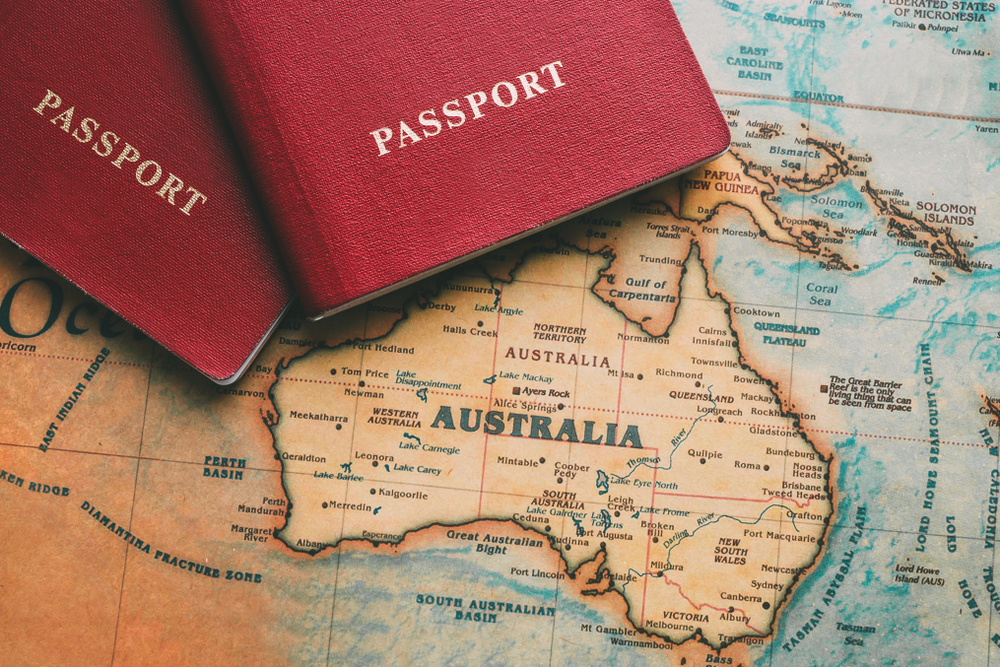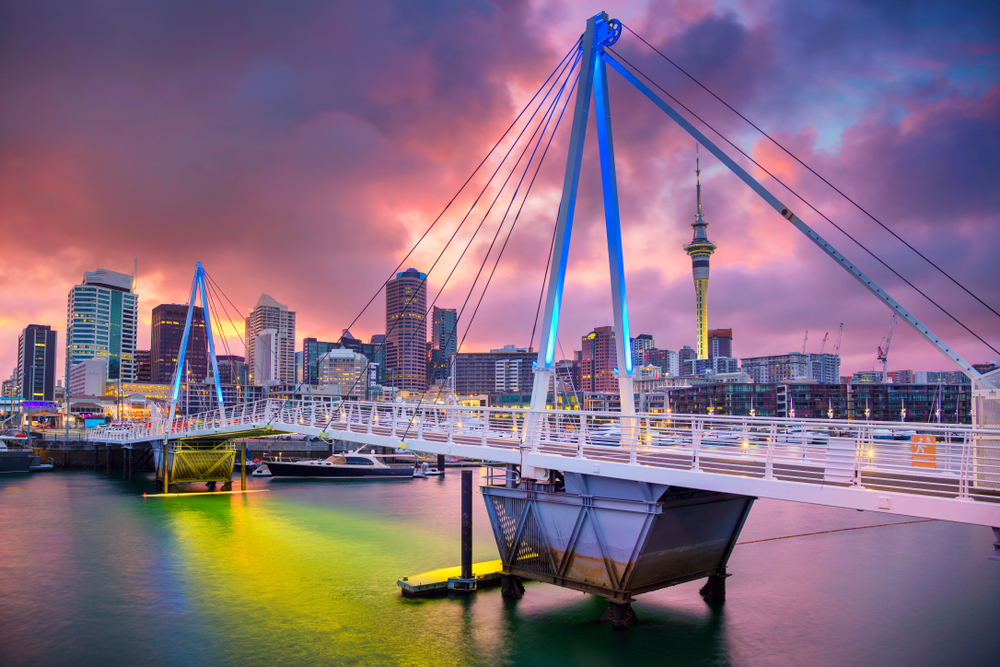Latest updates in global immigration
This week, the Global Immigration team at Smith Stone Walters would like to highlight the following recent updates from China, France, Malaysia, New Zealand, Singapore and Thailand.
China: New 144-hour visa-free policy for Hong Kong and Macau tourist groups in Hainan provinces
Effective 30 July 2024, the National Immigration Administration (NIA) has implemented a new policy allowing foreign tourist groups from Hong Kong and Macao to enter and stay for 144 hours in Hainan province without visas.
From that date, individuals can now visit and stay for up to 144 hours without a visa in Hainan Province for tourism purposes, provided that they will travel to Hainan from Hong Kong or Macao in a tourist group organized by a travel agency that is legally registered in any of the two special administrative regions and consists of at least two persons.
For any foreign national covered by a mutual visa exemption agreement or any other visa exemption policy of China, the relevant provisions shall prevail. The eligible foreign nationals may enter and exit in groups through any of the exit-entry ports set up by the State in Hainan Province, and shall stay within the administrative region of Hainan. The duration of stay for each foreign national is calculated from 0h00 on the day following the day of entry.
France: Contract of commitment must now be signed by residence applicants
Among several decrees issued on 14 and 16 July 2024 which implement the Immigration Law of 26 January 2024, one requires residence applicants to sign a contract stating that they undertake to respect the principles of the French Republic.
These principles include:
- personal freedom;
- freedom of expression and conscience;
- gender equality;
- respect for the dignity of all human beings without discrimination of any kind;
- the principle of secularism;
- the currency and symbols of the Republic.
Effective 17 July 2024, the Republican Integration Contract (CIR) must be signed and is valid for a period of one year.
Signatories agree to respect the principles and values of the French business and the French Republic and to follow with seriousness and diligence the training which are requested of them.
The CIR is the first stage of their integration pathway in France which includes the following actions:
- Civic training on the values, principles and institutions of the French Republic, on the rights and duties linked to life in France and on the organization of the French business
- Language training
- Career guidance advice and support to help find a job
- Support adapted to their needs to facilitate their conditions of reception and integration.
More information is available here.
Malaysia: Authorities increase visa service fees
Effective 1 September 2024, the MYXpats Centre of the Expatriate Services Division (ESD) of the Immigration Department of Malaysia has increased its service fees, following the introduction of new services and reduced processing times.
The new fees are as follows:
- Employment Pass (EP): RM 2000 (up from RM 800)
- Dependant Pass (DP): RM 500 (up from RM 450)
- Long-term Social Visit Pass (LTSVP under EP): RM 500 (up from RM 450)
- Professional Visit Pass (PVP): RM 1200 (up from RM 800)
- Transfer of Endorsement (TOE): RM 150 (this is a new service)
- Cancellation of Passes, Special Pass: FREE (this is a new service).
The authorities note the following:
- The amount stated above is solely for the expatriate (and dependant) application charges, and excludes any other Immigration fees;
- For any unsuccessful/rejected applications at the Approval Stage, MYXpats will refund 75% of Expatriate Processing Fees, subject to MYXpats Terms and Conditions. In cases where an appeal is submitted, a refund will not be applicable;
- Public Universities (Universiti Awam) and Government/Ministries are exempt from Processing Fee Charges.
The authorities highlight the following recent service improvements:
- Xpats Gateway: Officially launched on 15 June 2023, this single-window platform integrates the processes for obtaining supporting letters from approving agencies and regulatory bodies.
- Reduced processing time: In collaboration with the Ministry of Home Affairs and the Immigration Department of Malaysia, MYXpats Centre has reduced the application processing time from five working days to three working days for Tier 1, Tier 2, and Critical Sector companies.
- Online Sub-Product Services: The ESD Online system now offers services such as Transfer of Endorsement / Take-up Balance, Amendment of Approved Application, Shorten of Pass, Cancellation of Application, Permission to Study, and Permission to Work at a Second Location.
- Expansion of the Expatriate Satellite Centre (ESC):The ESC at Kuala Lumpur International Airport Terminal 2 (KLIA T2), which operates 24/7, was launched on 23 July 2024.
New Zealand: Transit Visas moving online and changes to transit requirements for Fijian nationals
Immigration New Zealand (INZ) has announced that people applying for a Transit Visa will no longer have to submit paper applications through Visa Application Centres, providing a more streamlined and efficient experience and removing fees associated with submitting through a Visa Application Centre.
Applying online makes the application process easier and provides applicants more visibility over their application, allowing them to check their application progress in real-time.
Chinese Group Transit Visa applications:
Applicants applying for Group Transit Visas for Chinese Nationals must continue using the paper application process. INZ will be working on an online solution for this category soon.
Changes to transit requirements for Fijian nationals:
Fiji will be added to the Transit Visa waiver list from 4 September 2024. This allows Fijian nationals to apply for a New Zealand Electronic Travel Authority (NZeTA) instead of a Transit Visa, simplifying the application process. From this date, Fiji nationals can apply for an NZeTA to transit through New Zealand. If you already have an approved Transit Visa, it will remain valid until its expiry date even after the waiver takes effect.
The fee for an NZeTA is NZD 23 for online applications or NZD 17 if using the free app. Most NZeTA requests are processed within 72 hours and are valid for two years.
Fijian nationals who intend to visit, study, or work in New Zealand will still need to apply for the appropriate visa before traveling.
Fijian nationals travelling from or to Fiji through Wellington or Christchurch on Fiji Airways will still need to apply for a Visitor Visa, as there are no transit facilities at Wellington or Christchurch airports.
Singapore: Passport-Less Immigration Clearance to be Rolled Out Progressively at Changi Airport from August 2024
The Immigration & Checkpoints Authority’s (ICA) has announced that travellers will enjoy passport-less immigration clearance at Changi Airport starting from August 2024. This is part of the ICA’s plan to strengthen border security, and at the same time enhance the traveller experience, by digitalising border clearance. Under the New Clearance Concept (NCC):
- all travellers aged six years and above will enjoy automated clearance;
- all Singapore residents (including citizens, permanent residents and long-term pass holders) and eligible foreign travellers will enjoy immigration clearance without having to present their passport.
Passport-less Immigration Clearance:
There are two types of passport-less immigration clearance, to provide travellers with hassle-free and faster clearance.
- Token-less clearance at air and sea checkpoints: Singapore residents at both arrival and departure, and all foreign travellers at departure, clear immigration using simply facial and iris biometrics, without the need to present their passport.
- QR code clearance at land checkpoints: Travellers use a QR code, instead of presenting their passport, during immigration clearance.
First-time foreign visitors and those re-entering Singapore using a different passport from the previous trip will need to present their passport for immigration clearance. They will be able to clear immigration using QR code on their subsequent trips.
Token-less clearance is possible at the air and sea checkpoints as ICA would know beforehand, the travellers who are coming through the checkpoints, from the advance manifests submitted by airline and ship operators.
At the land checkpoints, such traveller information is not available beforehand. As such, ICA has introduced the QR code as a token of identification in lieu of the passport, for faster and more convenient border clearance for both individuals and groups of travellers. Group QR codes can be stored and reused for future trips if the travel group remains the same.
QR Code Clearance to be Extended to Motorcyclists at Land Checkpoints by August 2024:
ICA has been progressively implementing the QR code clearance initiative for travellers at the land checkpoints, starting with car travellers on 19 March 2024. On 15 April 2024, ICA extended the initiative to bus drivers. As of 31 July 2024, over 70% of car travellers and bus drivers use the QR code for immigration clearance. ICA will be extending the initiative to motorcyclists and pillion riders, and cargo vehicle drivers and accompanying assistants, by August 2024, and to bus passengers by December 2024. The initiative will save travellers at the land checkpoints about 30% in time taken to clear immigration.
Token-less Clearance at Air and Sea Checkpoints to Start from 5 August 2024:
ICA will be conducting live trials of token-less clearance for Singapore residents on arrival at selected automated lanes in Changi Airport Terminal 3 from 5 August 2024. Token-less clearance will be progressively implemented at all terminals in Changi Airport by September 2024 and Marina Bay Cruise Centre by December 2024. Token-less clearance reduces the time taken for travellers to clear immigration by 40%.
Travellers Must Still Bring Along Their Passport:
Beyond passport-less immigration clearance at Singapore’s checkpoints, travellers will still need their passport for immigration clearance overseas. ICA may also occasionally require travellers to produce their passport for verification.
Thailand: New post-graduate and remote worker visas
Effective 15 July 2024, Thailand has introduced new visa routes for foreign graduates and for remote workers (or digital nomads), in addition to new measures to expand visa exemptions and visa on arrival.
The so-called Non-ED Plus visa allows foreign graduates to extend their stay for more than one year after graduation. It also allows holders to seek work during their extended stay period and, if employed locally, to apply for a relevant employment visa without leaving the country. While studying, they will also be permitted to depart and re-enter Thailand without the need for a re-entry permit.
The “Destination Thailand Visa (DTV)” allows certain foreign nationals to be resident in Thailand while working remotely for an employer abroad (or as a freelancer). Also eligible for the DTV are participants in Muay Thai courses, sports training, medical treatment, seminars and music festivals. The spouse and dependent children of DTV holders are also eligible for the DTV.
To be eligible to apply for a DTV, applicants must have proof of funds or a guarantee of at least THB 500,000 for the duration of the stay. The visa costs THB 10,000 with a permitted stay of up to 180 days per visit, with multiple stays allowed during a five-year period. Each stay can be extended once by another 180 days. Holders must exit the country between stays.
Expert advice on global immigration
If you need support with any aspect of global immigration, Smith Stone Walters is here to help.
To speak to a member of our global immigration team, please contact us today.













